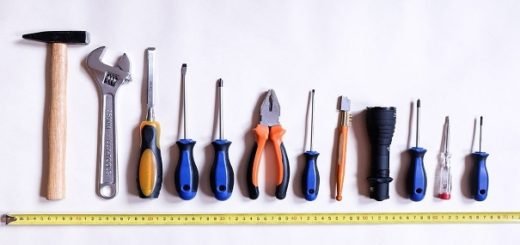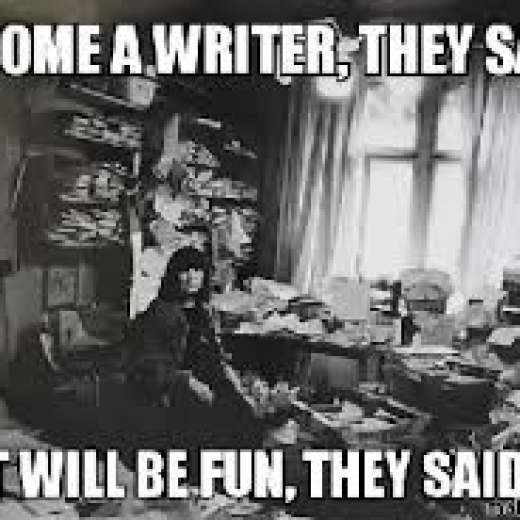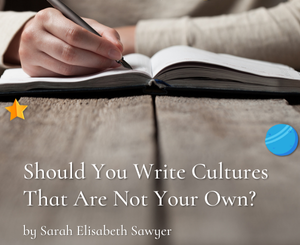Editing Your Own Work: 3 Tips For Editing
Welcome author and freelance editor, Anselm Audley, author of Heresy, Book 1 of the The Aquasilva Trilogy. Enjoy his 3 tips for editing your novel.
***
I’m both an author and an editor, but I’m very aware of the very different demands of those two roles. As an author, I’m a firm believer that the closer to your material you are, the better. As an editor, you need a fresh pair of eyes to see the book as the reader will see it, without all the vivid abundance of character and setting which live in the author’s head and may never have made it into the book.
So how do you edit your own work? We all have to take that first draft full of blood, sweat, and curses, and turn it into something polished before it ever goes near an editor or an agent, let alone publication in paper or ebook. And for us as authors to do that, when the setting and characters and motivations are all so intimately familiar, is a huge challenge. This book has been our companion for weeks, or months, or years – how can we even begin to see it as others might?
Well, to see it as a stranger might is to ask too much. But there are some easy steps you can take which make it a great deal easier, and the best bit is that all they require is the exercise of some self-discipline. And if you can finish a book, you’ve already got that self-discipline.
- Don’t edit until you’ve finished the book.There are authors for whom this is second nature. If that’s you, skip to the next point. If not, and you’re forever feeling the temptation to ‘just go back and fix that little bit’, resist. Editing before you’ve finished is like cooking a big meal and deciding to take it out halfway through because you’re convinced you got the marinade wrong. Finish it. Eat and enjoy, and if it wasn’t quite right, you can go back and do it again from the beginning.No matter how tempting it may seem, no matter how annoying the problem may be, editing in progress will break your flow. Not only that, but you’re editing with vital information missing – you don’t know exactly how this book ends (edit too much, and it never will). You may think your first draft sucks. Tell yourself it sucks. Tell yourself anything you like about it, as long as you keep writing it.
- When you do finish the book, stick it in a drawer for at least a week. Preferably a fortnight. Ideally a month (on the whole, the longer the book, the longer you should leave it). Don’t touch it. Enjoy that wave of exhilaration from having reached the peak and planted your flag on the summit. Sit down, enjoy the view, take some photographs.What’s the point of climbing the mountain and instantly starting to critique your climb? Or even of racing back down to publicise your ascent to the whole world? You’ve been living in this book for weeks, months, even years, and no amount of willpower and enthusiasm on earth is going to give you the perspective you need to embark on a second draft.
- Read the whole manuscript through.Take notes, as copious as you like, scribble on it with red ink, draw little bats in the margins or tear your hair out (not recommended – too much of this will actually leave a bare patch) but don’t touch a single key on your keyboard until you’re through with it.It will improve your second draft, it will save you time, and it’ll save you on anti-hair loss cream when you reach chapter 19 and discover that all your painstaking edits on the first three chapters are wasted because there’s a gaping plot hole and you need to rewrite them so character X isn’t in two places at the same time.
You’ll find the book doesn’t look the same as it did when you were writing it, or just after you’d finished of it. That rush of adrenaline which can make finishing so much fun will have gone. But you’ll see far more clearly what needs doing to the draft.
You’ll get a much better sense of where the book speeds down or slows up, where a character is stronger or weaker, and you’ll be much closer to seeing it as an outsider.
Then, when you’ve read the manuscript and your editing is done, you get to take off those editing glasses and plunge back in – but this time, you know where you’re going and what you’re doing, the end is ever so much closer than it seemed the first time round.
***
 Anselm Audley has been writing and editing fiction for fifteen years. He is the author of four fantasy novels published by Simon & Schuster and translated into several foreign languages, and now works as a freelance editor. More about his services at: www.anselmaudley.com/editorial-services/. Connect with Anselm on Twitter here: https://twitter.com/AnselmAudley.
Anselm Audley has been writing and editing fiction for fifteen years. He is the author of four fantasy novels published by Simon & Schuster and translated into several foreign languages, and now works as a freelance editor. More about his services at: www.anselmaudley.com/editorial-services/. Connect with Anselm on Twitter here: https://twitter.com/AnselmAudley.








[…] (CATHERINE COULTER) So, You Want To Be An Author Part Six – Character Building — Donna Newton Editing Your Own Work: 3 Tips For Editing — Writer’s Fun Zone (Guest Anselm Audley) 10 Truths About Awesome Dialogue — Write Your […]